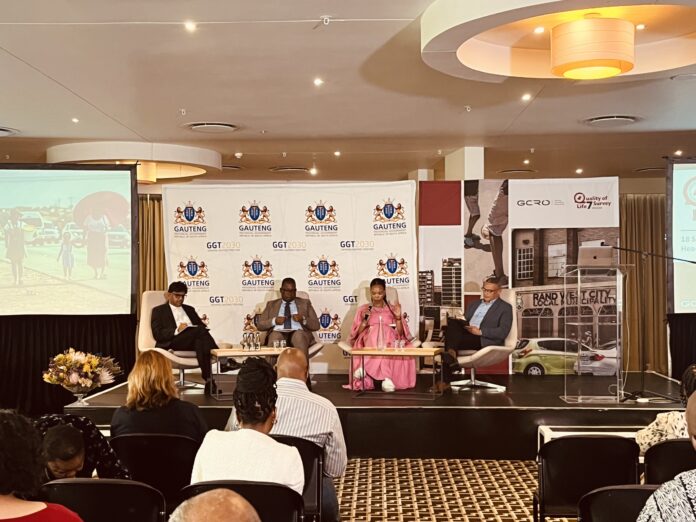The quality of life of black South Africans continues to be on a downward spiral.
This is according to a study released on Tuesday, which shows that black Africans continue to have a significantly lower quality of life score that is declining.
The research shows that 26% of Gauteng’s adults in households skipped a meal because there was not enough money for food.
This was an increase from 25% recorded during the 2020-2021 research period.
This information was revealed during the release of the seventh Quality-of-Life Survey (QoL) for the 2023-2024 term by the Gauteng City-Region Observatory (GCRO).
The research is a partnership between the Gauteng government, the University of Johannesburg, the University of the Witwatersrand, and the South African Local Government Association in Gauteng.
The study states that there is an increase in food insecurity for adult respondents in Gauteng.
A measure of development progress
According to the study, the number of Gauteng residents using public healthcare facilities has increased over the last 10 years.
During the 2023-2024 research period, 66% of Gauteng residents said they are using public healthcare facilities, up from the 62% during the 2013-2014 period.
However, the number of Gauteng residents using private healthcare facilities dropped from 28% during the 2013-2024 period to 23% in the 2023-2024 period.
Similarly, of the 66% of Gauteng residents who use public healthcare facilities, 57% said they are happy with the service they are receiving.
However, of the 62% of Gauteng residents using private healthcare facilities, 98% expressed that they are happy with the service.
The GCRO conducts the QoL surveys every two to three years, measuring development progress in the health of Gauteng residents, safety, life satisfaction, socio-economic status, the provision of services, government satisfaction and participation.
The survey was first done in 2009. It is designed to give a regular snapshot of what life is like for Gauteng residents.
The current dataset recorded the lived experiences of 13 795 residents at ward level.
Gauteng premier Panyaza Lesufi, who attended the event to announce the findings of the study, gave a keynote address and reflected on results in a panel discussion with GCRO researchers.
The event took place at the Radisson Blu Gautrain Hotel in Sandton, Johannesburg.
Safety and security
On the topic of safety, the research shows that more residents believe that crime has worsened in the last year.
According to the report, 48% of residents believe that crime levels in the province have increased, whereas 36% and 17% of residents believe that the crime levels have stayed the same and improved, respectively.
The research also shows that there is a significant increase in the percentage of residents feeling unsafe walking in their area at night.
It states that 57% of residents said they feel unsafe walking in their area at night, up from the 49% recorded during the 2020-2021 term.
Moreover, there was also a big increase in the percentage of Gauteng residents who are dissatisfied with the safety and security services provided by the government.
Sixty-two percent of residents said they were dissatisfied with the provision of safety and security services, up from the 54% recorded during the 2020-2021 term.



